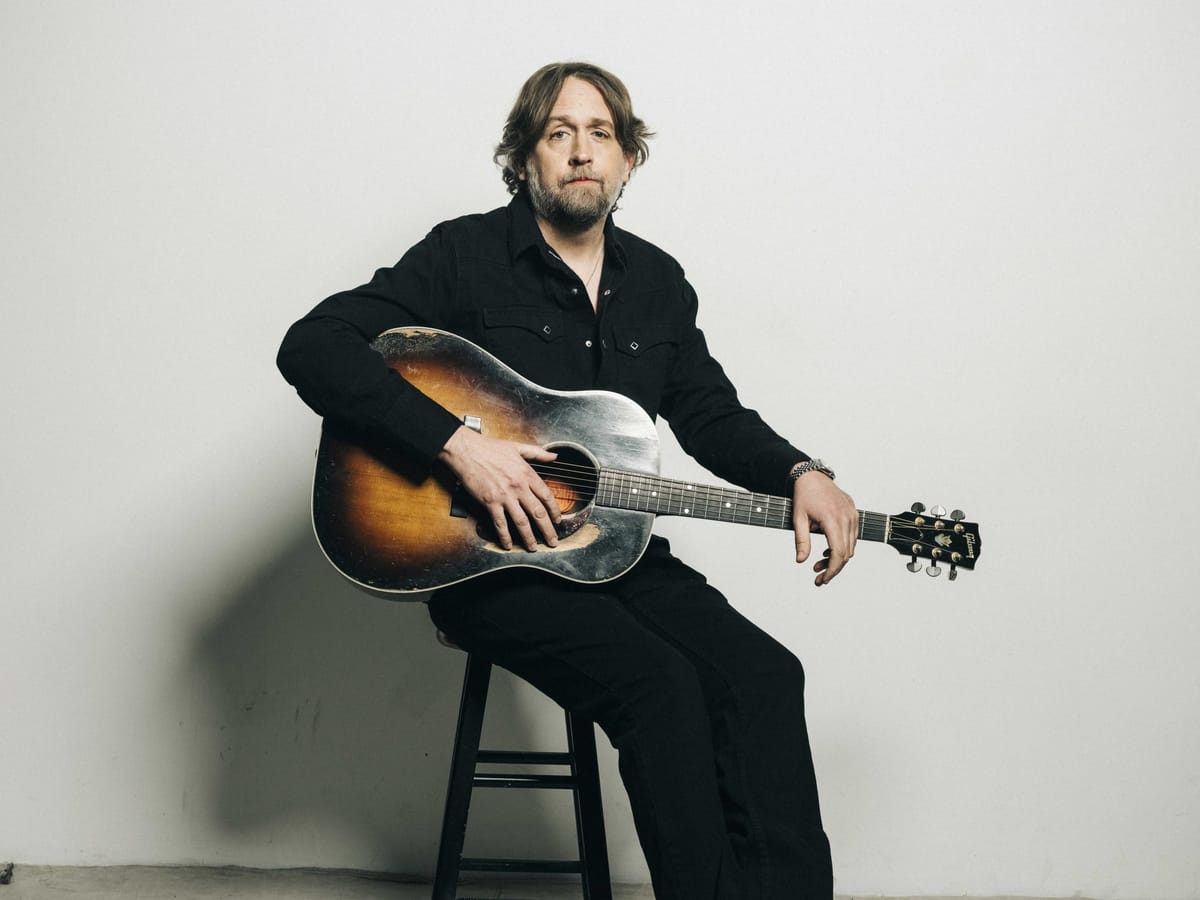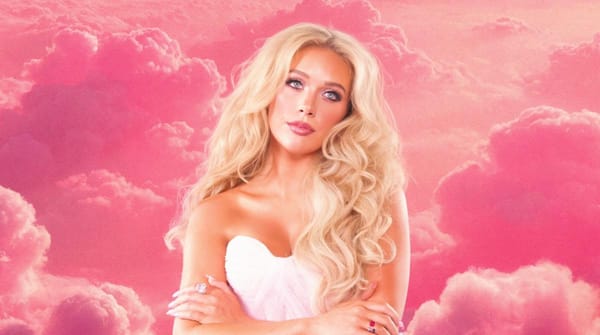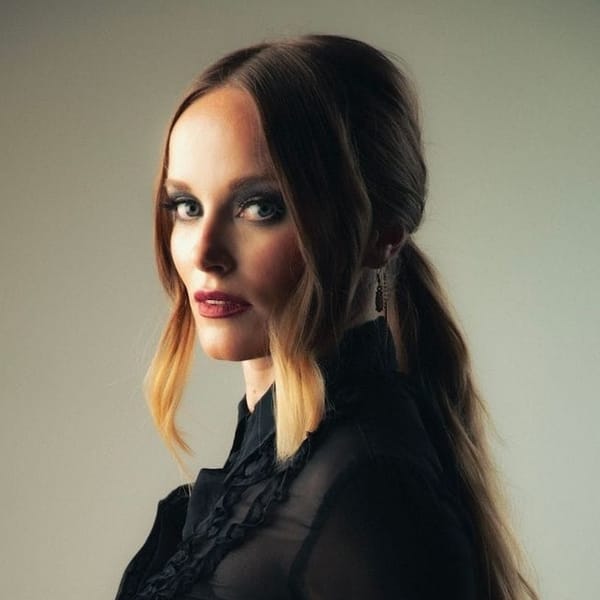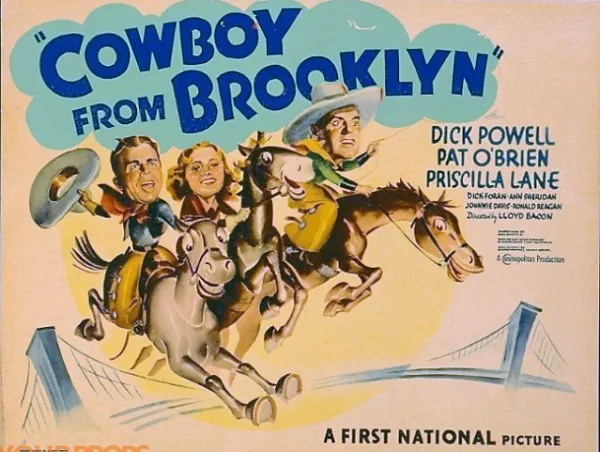Issue #112: Hayes Carll — The DRTI Interview
Hayes Carll on his new album, We're Only Human, songwriting, working under the long shadows of the Texas troubadours who came before him — and much more.

There's a levity and a humor that runs through the tradition of Texas singer-songwriters — Willie, who's gotta get drunk and sure does dread it; Guy Clark, who at six years old had seen a train before; Robert Earl Keen and his party that never ends — and Hayes Carll is one of the best contemporary exemplars of that aspect of Lone Star songwriting. More often than autobiographical introspection or nebulous philosophical meanderings, his songs hone in on evocative stories told with a healthy dose of understatement and wit. Or overstatement, as in the case of one of my personal favorites, "She Left Me For Jesus."
On his new album, We're Only Human, Carll is looking inward a little more than he often has in the past, without losing that approachable plain-spokenness that makes his music so compelling. As he told DRTI in this interview, the singer-songwriter found himself wanting to make changes in his life — and who hasn't been there — and felt the best way to fully integrate those changes was to try to articulate them in his art, creating reminders for himself as well as (maybe unintentionally) for his listeners. The result is a collection that's earnest but relatable, little crystalline, countryified meditations on making it through an increasingly stupid and difficult world as a person doing their best.
He was just as sincere and thoughtful on the phone, willing to talk about the knotty, vulnerable work of trying to be a better human being as well as his songwriting process. Hence the length of this interview; he was giving a lot, and it didn't feel right to cut much of it. So for the real Hayes heads and newbies alike, enjoy this look at We're Only Human.
Natalie Weiner: To jump right into the new album, the theme that jumped out to me was kind of…reflection and personal growth. Is that a fair assessment of where you were at when writing it?
Hayes Carll: Yeah, you could say it stemmed out of an attempt at some kind of personal growth. I reached a point where I was exhausted with the cycle of struggle on a bunch of different levels, and thought it probably would serve me well to spend a little time, or a lot of time, trying to understand that and move forward in a more positive way. Fatigue, really, sort of set me on that path, a path I'm sure most everybody goes down at some point. I don't think this was anything super unique to me, but I needed to change some things and understand some things better than I had been so I could live a better life.
So when I started writing, that was all I was interested in writing about — just turning over those rocks and trying to sort stuff out. I didn't feel like telling stories, or taking on somebody else's point of view, or making a good times record. All those things are fun to me and a big part of what I've done as a songwriter and recording artist, but it just wasn't where I was at. Instead I used my job as a tool to sort through my own stuff, and now I look at a lot of these songs as reminders for me because otherwise I'm not going to remember him [laughs]. I'm gonna go, "This works!", and then I'll do the exact opposite five minutes later. "Here's a really important realization for myself, about myself," and then it's gone with the wind. So every time I play them or hear them, they're a reminder: "Don't forget what you learned here because it was hard earned, and it'd be a shame to never change." It was all a big self help project, I guess.
NW: What did turning over those rocks look like for you, besides songwriting? What helped you in that process?
HC: I kind of used every tool I could get a hold of, whether it was therapy or programs or reading or study — but the biggest one for me was just being able to sit with myself. Most of the time my brain is going 1000 miles an hour, it never seems to shut down, and it keeps me stuck in a state that I don't like to be in: ruminating on the past, feeling anxiety about the future, comparison, my own anxieties and hang-ups and history and mistakes and all of it. It can turn into a big stew of negative energy that has kept me stuck.
I didn't feel like I could do any work until I quieted my mind. Every time I had tried, I failed, because I'm like, "Oh, look at the bunny rabbit," and I'm off — that can represent anything in the world. There's so many distractions and ways to self-soothe, and they hadn't served me well.
So for me a big step was some very basic meditation and journaling — and I couldn't even do that at first. My journaling was just Bart Simpson at the blackboard. I would write one sentence or a mantra over and over and over again: "Breathe, breathe, breathe" or something, because my system was so worked up and not used to being present or being still. It took a lot of time to get to where I could even do that. But when I got better at it, then I started being able to look beyond that and actually do some thinking and some exploring, which is fun and really gratifying. So some songs are specifically about just trying to get back to that place and remember that that's where the good stuff happens, when I can be inside myself and be present.
NW: I mean that's kind of the eternal struggle for all of us, I think, and certainly is special that you're willing to share and be vulnerable about how that struggle has looked for you. It does seem like the lifestyle of a professional musician is one that has a lot of unique hurdles when it comes to finding that feeling of being present in a consistent way — touring, being creative in front of people, etc.
HC: It's like you said, it's universal, and everybody has these struggles in one way or another — some people more than others. I don't care who you are, what you're blessed with: everybody's got their battles. As a touring musician, there are a lot of components that make it easier to get snagged along the way, to get derailed, but there are also a lot of jobs that have much more intense and challenging ways where you can get snagged and derailed.
For a while it felt silly to talk about…I guess I worry about judgment or comparison, or why does what I think or what I'm doing matter to anybody — and it may not, but that's beyond my control. It's where I'm at, and so I'm making music and art inspired by it. All I can do is just say what it is, and what it is is a middle-aged guy, twice-divorced [Carll and his second wife, singer-songwriter Allison Moorer, finalized their divorce earlier this year], trying to make whatever time he has left better than the life he has, looking for a little peace. This is my little journey through it, but it's an important one to me and hopefully it can turn into music that means something to somebody else.
NW: I will say that on stage, you project a pretty even keel energy — not much inner turmoil is coming across there, at least?
HC: Yeah, and that's an interesting part of what we do. It is a disconnect that I have felt at times or struggled with. If your job is public-facing, and it's your personality…Part of your job is exploring your feelings or exploring life — that's the songwriting part of it. Then there's the performer and entertainer part of it, and it can feel at times like they're very separate and disconnected. That can leave me feeling a little lost or unstable, when whatever you're going through personally, you shut it down, and you go on stage and you do that part of your job.
Everybody has that in some way, the discrepancy between what they're dealing with internally and what they show the world. But it can screw with your mind a bit when you feel like you're presenting in a false way.
NW: Sure — that tension between the desire to be honest and vulnerable in your lyrics, and putting on a good show. It feels like that presents particularly intensely in the Texas singer-songwriter tradition, with all its deeply felt lyrics penned by (mostly) tough, hard-living, macho guys who had kind of larger-than-life reputations. You're working in some pretty long shadows…
HC: I mean those guys are my heroes, and I grew up looking at that tradition, whether it was Townes or Kristofferson or Billy Joe, from the outside and saw exactly that. Like, these are warrior poets. These are hard-living people who have seen the world and faced their demons, and then come back from the other side with this gift to articulate it all to the rest of us. There was nothing, to me, cooler than that.
I tried to emulate that in my lifestyle, first of all, which wasn't great. That's what they don't tell you in that guidebook to being a Texas singer-songwriter: "Hey, some of this stuff's gonna bite you in the ass. It may give you some fodder for some songs, but it's also gonna make life harder and shorter, probably." You reach a stage, hopefully, where you can recognize that in the end, it's about the art and what those people created — that's their legacy, what kind of truth they brought to the world. I'm trying to make my lifestyle my own and not live up to anyone else's character expectations, and do the same with my art. It's not my job to be a bad knockoff of the legends. It's my job to figure out my own story, and my own joys and translate that and hopefully it's something people connect with.
NW: I imagine it's challenging though, even just in the context of the like five dudes on the internet who are perpetually relitigating Texas singer-songwriter legacies and whatnot.
HC: Yeah, I have to remind myself sometimes that like, 0.001% of the world has any idea who a lot of those guys are, let alone me [laughs]. I don't want to get into that competition, I will fail. That's part of the deal too, you come up with heroes and idols and then you compare yourself to them or worry about how other people compare you to them — or I did, anyway, and I've gotten to a pretty comfortable place where I just accept what I've done and what I'm doing and am OK with its value. It's nice to get positive feedback, to know that your work affects people or helps people or brings them joy or comfort, but I think I'm most interested in an audience of one at the moment, making sure I believe what I'm saying and feel good about it.
NW: Speaking of Texas, what made you decide to record the new album in Austin?
HC: I had made the Hayes & the Heathens record down there in [Band of Heathens frontman] Gordy Quist's studio last year, and I really enjoyed everything about that process. It was sort of the opposite of how I typically go about things in that our only rule was, "If it's not fun, we don't do it." I'd never been in a band before — had bands, but not been in one — and it took a lot of pressure off. It was just joyful. They would hand me an electric guitar, show me the lick to play because I'm not a great guitarist, and I got to stand over there on the side and, like, rock out. It was really liberating for me.
As we came out of that process, I was starting to think about my own record and I had an idea that it was going to be personal and involve some of these themes and work. I love Gordy as a person and think he's a great musician, and just relate to him — we're kind of the same age — so I felt comfortable bringing that to the table, and knew that he would be supportive in the process of trying to figure out the best way to turn all that into music. I'm labeled as a co-producer on the record, but he did the heavy lifting. It was more of a vanity thing for me to get a producer credit. But it was very collaborative, and that's what I needed as I was kind of working my way through this album.
I kept adding songs. I would write something new and call him up and say, "Can I come in for a day and track this?" So it went on for quite some time, and we ended up with a bunch of extra songs that hopefully we'll release soon. It was recorded probably over a period of three months, with breaks in between so I could go chase down another idea.
NW: How has your songwriting process evolved over the years?
HC: It changes all the time. In the early days, it was trying to catch lightning in a bottle, to keep my antenna up and when an idea hit me, try and put it into the language and melody. I used to start with lyrics first, and then I would start with music and write lyrics to the music. But at a certain point I realized that I didn't have the tools to do the craft, that I was just relying on that inspiration. When that dried up, when I wasn't feeling it, or life was a certain way, I wasn't getting anything done.
Then I moved to Nashville and I started to put a lot more time into them, because I wanted to write songs that could hold up — whatever the topic was — if somebody else was singing them, that weren't reliant on me doing a wink and a nod, or the way I delivered them. I wanted to write songs that could stand on their own whoever was performing them.
There's times where I'm just having fun with words, doing word exercises that turn into something that sounds cool to me, and then there's times where I'm, like on this record, wrestling with some stuff, and the songwriting becomes a tool to help me sort through that. That's where I'm at right now, that's interesting to me and it helps life feel aligned that I'm not writing about something separate from myself.
NW: Is there any advice that you give songwriters who are just starting out?
HC: I probably have given out a lot of advice, but I would probably cringe if I heard some of it now. To me, the fundamental thing that's most important is you gotta believe in it. You can write "Wooly Bully" or "Yakety Yak," it doesn't have to be profound or anything — that's not at all what I'm saying. If you're writing stuff and putting stuff out of the world that you don't believe in, it's ultimately going to be dissatisfying to you.
Ray Wiley Hubbard told me really early on in my career, basically, the song is what you got. Like, your career will come and go. You can't control how people receive it or what your popularity level is going to be. Those things are passing, but the song will always be there. 30 years later, you'll still have that song, and having something where you can look back and say, "I'm proud of that work that I did" is invaluable. Especially if you're still performing and playing, to not have to be playing stuff where when you wrote it you were like, "This was stupid, and I'm just doing it for X, X, Y or Z reasons"... Just being true to yourself and putting care into your work goes far.
NW: You and Ray are pretty good friends, right?
HC: I think Ray's about 30 years older than I am, but when I got into this, I didn't have many role models or people that I knew that I could actually talk to. Ray was somebody that I deeply respected as a songwriter, first and foremost. But what I found out about him is that he's a very spiritual person, and someone who has had his struggles and faced him and is trying to live life with integrity and decency, and he's very giving and pays it forward. That's been a huge lesson for me. Just because you end up in the ditch, doesn't mean you have to stay there, and your blessings and good fortune are a lot more valuable if you can share them with others and help people out along the way.
NW: To touch on a couple of the songs on the album — "May I Never" has a kind of gospel hymn quality that I don't know if I've really heard in your work before. Was that sort of inspiration on your mind as you wrote it?
HC: When I started it felt it had a kind of gospel thing to it that I liked, and I thought, "Let me just explore this." I don't have a particularly religious upbringing at all, and almost no direct interaction with like gospel music, so all it was was just a hint of something familiar. I struggled for a long time for what the takeaway was, writing lots of different verses, and it ultimately became this idea to not abandon myself — to not cover up, or numb out, or surrender who I am and where my heart and soul are for anything.
It can be hard, with insecurity and self-doubt and the world telling you you're wrong or you need to be something else, or believe something else. It can be hard to sort of stay there, stay connected with that part of you. So that was a takeaway I needed for myself, and that's where that song landed. It being sort of a spiritual gospel thing felt right to me — like, this is a big moment for me, I need to really get as much spirit in there as I can so I can hang on to that [laughs].
NW: I think that's a really lovely sentiment, like, "May I never forsake you again," but about yourself — people might assume you're talking about somebody else or God, or whoever.
HC: I kind of wrestled for a long time with, well, who is that? What is that? And ultimately, it was just me [laughs]. Like, OK, I'm an important part of my own equation here. Let's solidify that idea, and try to hang on to it. It's important.
NW: Also the idea that you can be spiritual without necessarily attaching yourself to a church or institution is definitely an important one.
HC: Yeah, I agree. I ran from religion as a young person — really, for a lot of my life. But I think what I was running from was the dogma or the institution and not what I think makes it so valuable, which is the the roadmap and the life lessons and the sense of belonging and the higher power and something greater than yourself and removing ego. There's a lot of universal truth in it, which is how it became so universal. So as I get older, I'm able to separate a little more what's useful to me from what's not right.
NW: Obviously, you have songs on this album that are sort of not so internally focused — more sort of about the state of the world as it were, songs like "Progress of Man (Bitcoin & Cattle)" and "Good People (Thank Me)." That's been a part of your songwriting now for a long time, basically runs through all of it, but always in a kind of…understated way.
HC: I'm going to observe the world. I have feelings. I have emotions and opinions about things, and so sometimes that that comes into my music, I try not to bang people over the head with it, and put it in a way where they can either have a laugh or or have some kind of commonality in it — where people hopefully can relate to it and not feel lectured to. I don't know that I've always succeeded, but that's how I'd like to approach it. I love a good anthem and a direct, powerful song about social issues, but I have found that I'm not particularly great at writing them as much as I wish I was. So I just try to write about the things that are important to me in the way that I can.
NW: I think a sense of humor in songwriting is always welcome. But I hear what you're saying, it's hard to be earnest and convincing sometimes, when you're talking about broader political ideas.
HC: It can also be preaching to the choir. Like, I don't want anybody to just shut down immediately, and again, I'm not sure I've been successful at that. But I like to find the commonality in people and see them for their best traits and not their worst, and that seems very difficult at times — particularly these days, when a lot of people lead with their worst traits, or we're all identified by a particular issue, or we lead with our political identity, and there's a lot of judgment going on.
I can be a very judgmental person and feel very self-righteous, but I do better, and I like myself more, and I seem to connect to people a lot more when I can have some grace for others and have more curiosity than judgment. That's a message I'm trying to get through to myself, but I also think it's one that everybody would do well to practice. Once we start demonizing each other and otherizing each other as people — believe what you believe in and and and fight for what you think is right, but I think once we shut down the idea that anybody else could be right or have anything positive to add, that we're in trouble individually and as a society. I fear we're heading that way more and more.
NW: It can be really hard, though, when people are saying things that are…wild. But I get it — I'm not a native Texan, but living here has definitely opened my eyes to the myriad ways that people think about the world that I may not necessarily expect.
HC: I'm not saying it's easy. It can be very disappointing and frustrating and threatening. I think I spent a lot of time expecting other people to do what I thought they should do and behave how I thought they should behave and believe what I thought they should believe, and and wasn't applying that to myself. So I'm trying to have a little humility, which doesn't mean weakness or lack of conviction, just a little less self-righteousness and a little more curiosity. If I can model that, then maybe somebody I disagree with can do the same for me and that's where I feel like change and growth can happen. If we can pause long enough to accept that the other person is a person and is coming at life with their own background and upbringing and trials and tribulations, then we can get pissed at each other about…the things. But to lose respect for each other as a group, as a political body, as people, that doesn't sound helpful to me in any way. I'm trying to get better at finding peace with myself and then being able to engage with the world from that place.
NW: Is there any chance you'd move back to Texas?
HC: I am moving back to Texas, in a couple of weeks. I'm moving back to Austin in August. I've had a wonderful time here in Tennessee, and I love it very much. But it's a new chapter in life, and I'm gonna go back home for a bit.





